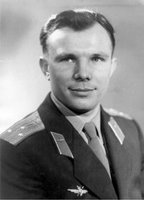Modest Mussorgsky
Tonight, I'll be watching Mussorgsky's opera Boris Godunov (based on Pushkin's play of the same title) on DVD. So I thought it best to research this most famous 19th century Russian composer (there is even a discussion forum dedicated to him).
Modest Mussorgsky was a thorough Russophile in mid-19th century Russia, when fervent nationalism was at its peak. Eventually, he joined The Mighty Handful, a group of composers dedicated towards promoting distinctly Russian style music. Many of his compositions are based upon Russian folk songs he learned as a child.
Unfortunately, he left the group after becoming bitter that Boris Godunov was withdrawn from the Imperial Opera (the censor heard choruses critical of the czar). Perhaps not incidentally, the Simpleton character cries "Weep, soul of Russia" at the end of the opera. Much of Mussorgsky's music seems to have a depressed, fatalistic, or pessismistic undertone (generally characteristic of Russian music?). (More on the score....).
Not much is known about his later private life except that he was a serious alchoholic (eventually dying from alcoholism in 1881). However, he may have been fortunate to have Rimsky-Korsakov, with whom he lodged, re-orchestrate his work after death.
Finally, he produced the well-liked Pictures at an Exhibition, based on watercolors painted by his good friend Victor Hartman. The watercolors are gone but we can imagine how they once may have appeared. A brief synopsis of the pictures here.
A review of pianist Norika Ogawa's Pictures at an Exhibition. Audio Clips
UPDATE: I failed to realize how hard it is to sit through 4 hours of anything, let alone even an opera with subtitles. I'll get the music CD instead.


